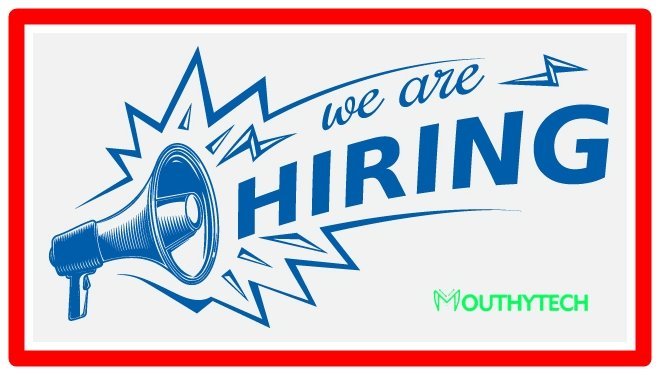Italy Program Manager Job Vacancies
As part of this thriving, global manufacturing organization, the European business unit now requires an experienced Programmes Manager to lead the Product Information Management (PIM) strategy, actively driving the work program while steering the necessary change to meet business objectives.

The group has locations throughout the UK and Europe. Candidates can be located near any of their central European business units, as there will be an element of flexible/ agile working with this role.
Italy is a country of outstanding natural beauty, historical wonders, and a varied culture steeped in art, fashion, food, and music - you'll require specialist skills and a full grasp of the language if you have aspirations of working in Italy as a program manager, let's look at what this program manager means.
What is a Programme?
A program is a set of instructions that a computer uses to perform a specific function. To use an analogy, a program is like a computer’s recipe. It contains a list of ingredients (called variables, which can represent numeric data, text, or images) and a list of directions (called statements) that tell the computer how to execute a specific task.
What is a manager?
A manager is a professional who takes a leadership role in an organization and manages a team of employees. Often, managers are responsible for managing a specific department in their company. There are many types of managers, but they usually have duties like conducting performance reviews and making decisions. Managers are often the line of communication between a company's employees and its high-level executives.
Who is the program Manager?
A program manager is a strategic project-management professional whose job is to help oversee and coordinate the various projects, products, and other strategic initiatives across an organization.
Qualifications for program manager Job in Italy:
The APMP (Association for Project Management) is a qualification that assesses the knowledge involved with Project Management. This can show your employer that you’re a skilled and committed individual with established project management knowledge.
The PMP (Project Management Professional) certification can also be achieved by studying and taking an exam. Your company may require you to have a PMP certification to move into program-level management.
Companies can offer specific training programs to ensure the correct company and project procedures are implemented.
Progamme manager Skills:
In addition to these desired qualifications, employers also look for the following attributes in candidates:
- Effectively multi-task and impeccable organization skills
- Excellent man-management and motivational skills; both written and verbal
- Strong client management and negotiation skills
- Excellent time management skills
The job responsibilities and duties of a manager in Italy:
A manager's daily responsibilities may vary depending on their work industry. However, some typical duties of managers across different sectors can include:
Training employees.
Managers are often responsible for training their employees to perform their job duties and learn new skills. They might also offer them professional development opportunities. Often, managers also act as mentors to their employees and teach them skills they can use as they advance their careers.
I was making decisions.
Another duty of a manager is making decisions for their department. Sometimes, managers make difficult decisions, so they must have a robust decision-making process. This can help them make the best possible decisions for the success of their departments. Often, managers communicate with their employees and other people at their company to help them make the best decisions.
She is leading a team.
A vital responsibility of a manager is leading their team. They give direction to their employees and answer their questions. They also delegate tasks to specific employees and ensure that projects stay on track. Great managers commit to being fair leaders to help increase their teams' productivity.
Managing conflicts.
Managers also address conflicts when necessary, including disputes between team members. This means that they usually exercise conflict resolution skills and mediate workplace conflicts. This can help them maintain a positive work environment for their team.
They are managing their department's budget.
Managers sometimes take responsibility for their department's budget and use finance and accounting tools. They may meet with other professionals to create budgets. They can also determine how much funding their department needs to operate.
We are conducting performance reviews.
Another primary responsibility of managers is conducting performance reviews for their employees. Usually, performance reviews occur periodically. In performance reviews, managers give their employees feedback and suggestions on how they can improve. They might also help their employees set goals or track their progress in meeting goals.
We are hiring new employees.
Managers also frequently work with their company's human resources department to hire new employees. They may identify job candidates, conduct interviews, and extend job offers. Typically, great managers know how to tell if a job candidate is a right fit for their team, as they know what skills and qualities people need to excel in their department.
Types of managers.
There are many types of managers, viz:
Top managers.
Top managers are usually involved with their company's overall strategy. They may oversee many departments. They are also responsible for ensuring that different tasks and projects align with the overarching mission of their company.
General managers.
General managers are responsible for various management tasks, including overseeing product production. They typically set goals for their employees and create product plans. Usually, a general manager's overall goal is to increase the company's revenue.
Line managers.
Line managers are responsible for achieving specific outputs. Typically, their responsibilities relate to their company's products or services. Line managers often communicate with a company's upper management and report results.
Team managers.
Team managers, referred to as supervisors, oversee specific groups or functions of an organization. They may be tasked with supervising projects or keeping teams on track. Like line managers, team managers also report results to a company's upper management.
Frequently Asked Questions:
What Does a Program Manager Do?
To understand what a program manager’s role entails, we first need to define what we mean by “program.”
In an organizational context, a program refers to a group of related projects (or a combination of projects and programs) that support a strategic business initiative. This initiative could include: launching a product, implementing a new sales process, or opening a new location.
The program manager’s job is to take a high-level view of the entire program and strategically guide project managers to ensure they work effectively toward the program’s objective.
Then each project that falls under a program’s umbrella is coordinated by a project manager.
The Project Management Institute describes the role program manager as essentially a super project manager. You can also think of a program manager as a meta-project manager, strategically directing all of a program’s related projects simultaneously.
Here’s how the Project Management Institute describes the day-to-day responsibilities of a program manager:
- Coordinate the projects and their interdependencies
- Manage and utilize resources across projects
- Manage stakeholders’ communication
- Align deliverables to the program’s outcome
- Manage the primary program documents
- Daily program management throughout the program lifecycle
- Define the program governance
- Plan the overall program and monitor the progress
- Manage the program’s budget
- Manage risks and issues and take corrective measurements.
How Do Program Managers Help Other Members of the Organization?
Program managers provide project managers with strategic guidance that a project manager might not be able to see when focused on just a single project.
Program managers also help other teams across the organization, however.
- They can improve the entire cross-functional team’s communication and coordination.
Due to their strategic eye on all of the significant initiatives across the company, program managers serve as valuable communication hubs for cross-functional teams. - They can help developers.
Program managers have an organization-wide view. They monitor the requirements and progress of not just one strategic initiative but all of them. They can help protect the development team from being overloaded with work or given unreasonable deadlines.
- They can help product managers.
Similarly, a program manager can set realistic expectations for product managers during product development. Program managers can show them the broader organizational context of their available development resources. Also, suppose a dev team completes another initiative sooner than expected or hires more people than planned. In that case, a program manager can alert a product manager that new resources might be available to speed the development of their products.
For example:
During the product development process, the program managers will know when to strategically bring together the marketing, sales, and product teams to discuss the best way to handle the launch. They’ll also often be the first to know when a company budget issue might affect several departments working on the same program. Program Managers can bring those teams together as soon as possible to discuss the budget setback.
- They can help all individuals and teams working on a program make better decisions.
Finally, program managers focus on the strategic questions of “How?” and “When?" to help improve the decision-making processes for everyone working on the related projects.
While this is a crucial difference between program and product managers, it also reveals how the two roles can work synergistically to give programs a strategic advantage.
Official Related Links You Need
You have the best Guide on Immigration, Education, and Employment details for you to Get more out of what you need to know, and it is all free of charge:
Get More Guide - https://bit.ly/ABROAD-IMMIGRATION-CENTER
Immigration - https://bit.ly/IMMIGRATION-CENTER
Education - https://bit.ly/EDUCATION-CENTER
Employment - https://bit.ly/EMPLOYMENT-CENTER
US Immigration - https://bit.ly/US-IMMIGRATION
Conclusion
Program manager Jobs in Italy is an article that creates awareness about the available manager job vacancies in the country.
The article further gives the required skills for a manager's job, the duties and responsibilities of managers, some frequently asked questions, etc.
What's Your Reaction?




















